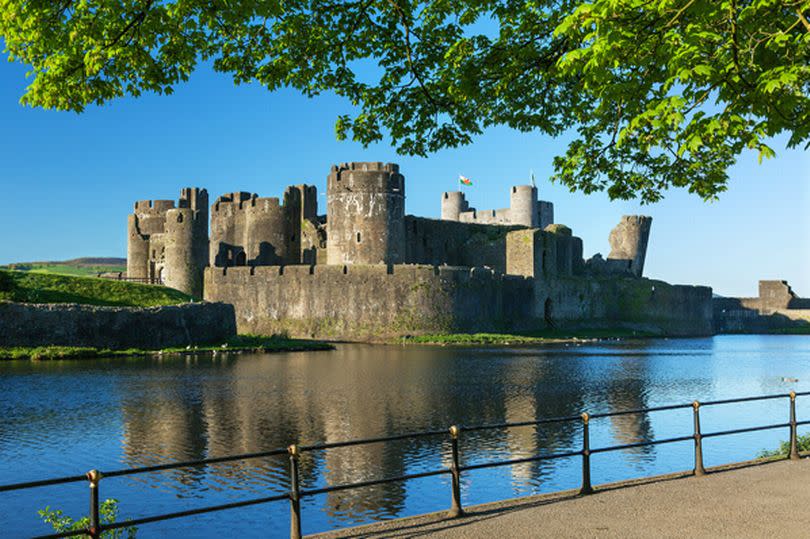Welsh Government responds to task and finish group governance review of Cadw

The Welsh Government has accepted the majority of recommendations from an independent task and finish group aimed at strengthening the governance and commercial activities of its internal agency with responsibility for historic monuments, Cadw.
The review team, chaired by former chief executive of the Welsh Rugby Union, Roger Lewis, was commissioned last year by former Deputy Minister for Arts, Sport and Tourism Dawn Bowden. In responding to the report’s 29 recommendations, new Cabinet Secretary for Culture and Social Justice, Lesley Griffiths, said: “I have asked my officials to start work on implementing the recommendations which can be taken forward in the short-term, taking account of the difficult budgetary environment.
"The incredibly difficult financial situation facing the Welsh Government, which has an impact on Cadw and the wider heritage sector, requires innovative ways of delivering services to be considered and the recommendations provide an opportunity to do this.”
Read More: Record revenues for Port of Milford Haven
Read More: New chair of the Development Bank of Wales
To support the skill requirements of the wider heritage and cultural sector, the group’s recommendations included the establishment of a Welsh school of heritage and conservation skills.
While recognising the merits of such a project, Ms Griffiths said: “Given current financial constraints this is unlikely to be achievable in the short term without significant external partnership funding. It would require reprioritisation of current resource and funding. However, great progress has been made in improving qualifications available for heritage skills, including the development of training opportunities.
"We will continue to work alongside further education bodies and the private sector to develop these qualifications wherever we can.
While it generates its own commercial revenues, the lion’s share of Cadw’s funding, both capital and resource, comes from the Welsh Government. In the current financial year Cadw, which has 131 historic sites in its direct care, has seen its budget cut by 10.5%.
Remaining an internal agency of the Welsh Government, Ms Griffiths agreed with the review group’s call for “creating greater agility, flexibility and dynamism” through delegated authorities to the Cadw senior management team.
The minister said: “My officials in Cadw are in the process of devising a detailed timetable to implement those recommendations which can be taken forward in the short term. They will need support from officials in other departments, in particular, from human resources and governance teams, when considering a number of recommendations such as revisiting the internal agency framework document.
"This plan will need to be fully costed and affordable given the challenging financial context we are currently operating in.”
The review group also called for a clarification of the role of the Cadw board and it developing closer working relationships with ministers will cultural responsibilities both in Cardiff Bay and Westminster.
Ms Griffiths said: “As the new cabinet secretary with responsibility for Cadw, I would welcome a closer relationship with the board and agree it is timely to undertake a review of its effectiveness.
" In the short time since its establishment, the role of the board has evolved and new members with different perspectives have been recruited. I value the advice and expertise of the board in supporting Welsh ministers to take decisions.
The report also recommended an enhancement of activities to assist Cadw’s core purpose, including building on its commercial work as a “significant visitor attraction and commercial enterprise and its role as a keeper and promotor of historic heritage of Wales.”
The report, which was published last December, added: “The senior executive team should undertake a complete, fundamental and radical root and branch review of all its commercial activities, including its staff skills, staff resource levels and relationships with external partners. Cadw does not exist to be a commercial operation and so any commercial activity must enhance and support its core purpose.”
Ms Griffiths in response said: “The report rightly acknowledges Cadw’s commercial performance has improved significantly in recent years, in particular following the most recent review of its commercial performance undertaken six years ago. Indeed, Cadw continues to review the way it operates, including commercial activities, staff skills, resource levels and its relationship with external partners. However, there is always a need to reconsider its approach and seek external advice where appropriate.”
While not directly governance related, the group called for a specific cultural tourism strategy for Wales. Ms Griffiths said: “The government is currently consulting on the culture strategy for Wales. This will cover the contribution that cultural organisations can make to tourism in Wales. However, I am not convinced a separate cultural tourism strategy is currently necessary.”
On the Welsh Government’s response to his team’s report and recommendations, Mr Lewis said: “The financial challenges facing the arts, culture and heritage sector in Wales are more considerable today than at any other time in recent memory.
"In such circumstances I am greatly encouraged that our review of Cadw, which I had the honour of chairing, has been so well received by the Welsh Government. The decision to appoint a new head of business development and visitor experience for Cadw, supported by the recommendations in our review, is testimony to this.
"The new post will play a key role in Cadw’s investment strategy, maximise income generation, and will be so important in ensuring we encourage more visitors to Wales. Cultural tourism is a key economic driver for so many parts of Wales which benefits so many areas of local Welsh business. This is to be welcomed.”

 Yahoo News
Yahoo News 
